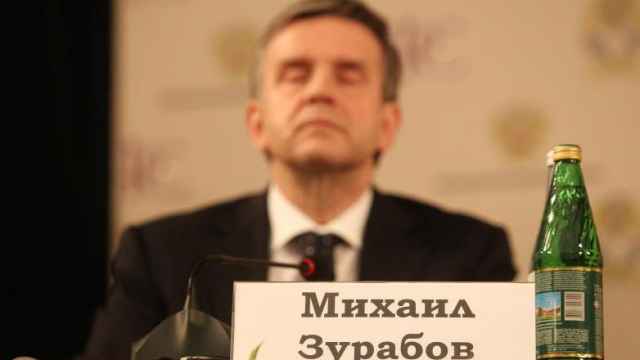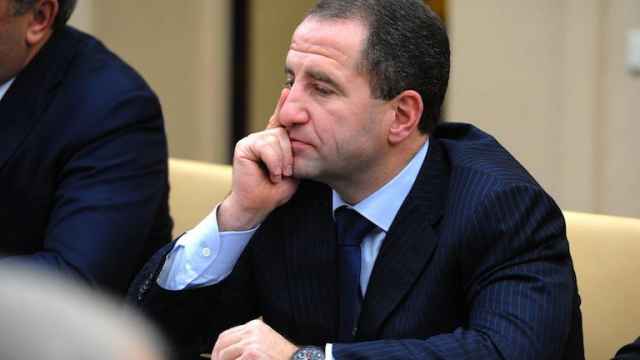Moscow said that it expects Ukraine to consider its proposed new ambassador after Kiev earlier outright rejected the candidate, the Interfax news agency reported Thursday.
Russia’s former Ambassador to Ukraine Mikhail Zurabov stepped down last month, having served during the Maidan revolution, Russia’s annexation of Crimea and Russia’s involvement in separatist violence in eastern Ukraine.
A Ukrainian Foreign Ministry official announced the rejection of the Kremlin's candidate, Mikhail Babich, in a televised interview on Wednesday saying that “it has been removed from the agenda.”
However, presidential spokesman Dmitry Peskov said Thursday that Moscow is still proposing Babich, a former senior official in Russia’s security services, for the position.
"It is wrong that they have refused to consider Babich’s candidacy. There are various diplomatic procedures for preliminary acceptance [of an ambassador], which are carried out away from the media," he said when asked if Moscow would be proposing a new candidate for the role.
“If the Ukrainian side takes the decision to lower the level of our diplomatic relations and considers this reduced mode of diplomatic relations to be appropriate, then that is the decision of the Ukrainian side," he said in a statement to journalists.
Ukraine’s Foreign Minister Pavlo Klimkin told the Interfax Ukraine news agency Wednesday that Ukraine’s rejection of Babich was “about creating a positive dynamic in what’s happening within the context of Russian aggression."
Relations between the two countries became strained in 2014 with Russia’s annexation of Crimea and the onset of violence in the Donbass region, which has killed over 9,000. Ukraine blames Russia for supporting pro-Russian separatists in the conflict but the Kremlin denies any involvement.
A Message from The Moscow Times:
Dear readers,
We are facing unprecedented challenges. Russia's Prosecutor General's Office has designated The Moscow Times as an "undesirable" organization, criminalizing our work and putting our staff at risk of prosecution. This follows our earlier unjust labeling as a "foreign agent."
These actions are direct attempts to silence independent journalism in Russia. The authorities claim our work "discredits the decisions of the Russian leadership." We see things differently: we strive to provide accurate, unbiased reporting on Russia.
We, the journalists of The Moscow Times, refuse to be silenced. But to continue our work, we need your help.
Your support, no matter how small, makes a world of difference. If you can, please support us monthly starting from just $2. It's quick to set up, and every contribution makes a significant impact.
By supporting The Moscow Times, you're defending open, independent journalism in the face of repression. Thank you for standing with us.
Remind me later.





